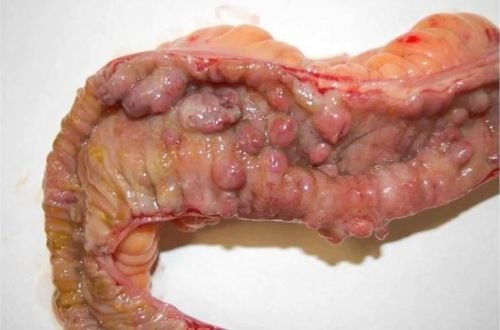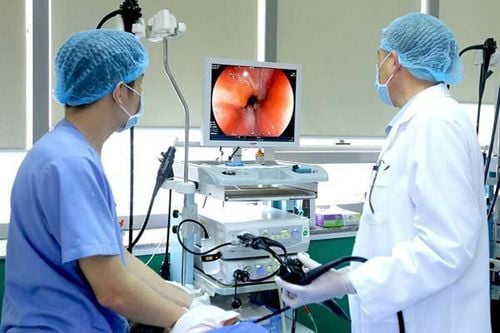This is an automatically translated article.
Article written by MSc Mai Vien Phuong - Department of Medical Examination & Internal Medicine, Vinmec Central Park International General Hospital
There have been studies showing evidence that Crohn's disease runs in families, with about 15% of patients having a close relative with the disease.
1. What are variants of Crohn's disease?
There are 6 variants of Crohn's disease, all based on location. These include:
Gastroduodenal Crohn's disease mainly affects the stomach and duodenum, which is the first part of the small intestine. About 5 percent of people with Crohn's disease have this type. Enteritis occurs in the second part of the intestine, called the jejunum. Like gastroduodenal Crohn's, this variant is less common. Ileitis is inflammation in the last part of the small intestine, or ileum. About 30 percent of people with Crohn's disease are affected at this site. Ileocolitis - Inflammation of the ileum: Affects the ileum and colon and is the most common variant of Crohn's. About 50 percent of people with Crohn's disease have this variant. Crohn's colitis is found in about 20 percent of people with Crohn's disease. It only affects the colon. Both ulcerative colitis and Crohn's colitis affect only the colon, but Crohn's colitis can affect the deeper layers of the intestinal lining. Perianal disease affects about 30 percent of people with Crohn's. This variant usually involves fistulas, or abnormal connections between tissues, deep tissue infections, as well as sores and sores on the outer skin around the anus.

2. Is Crohn's Disease Hereditary? Yes, genetics seems to play a role in Crohn's disease, although other environmental factors may also be involved. There is evidence that Crohn's disease runs in families, with about 15% of patients having a close relative with the disease. 3. Genetic risk factors for Crohn's disease
Experts have found a link between the disease and mutations in genes located on chromosomes 5 and 10. Mutations in the genes ATG16L1, IL23R , IRGM, and NOD2 appear to increase the risk of developing Crohn's disease.
Research shows that these genetic variations affect the presence of bacteria in the digestive system. These changes in bacteria can harm the normal ability of the intestinal cells to react.
If intestinal cells react abnormally to bacteria, it can cause inflammation and digestive problems associated with Crohn's disease.
Please dial HOTLINE for more information or register for an appointment HERE. Download MyVinmec app to make appointments faster and to manage your bookings easily.
References:Cleynen I, et al. (2015). Inherited determinants of Crohn's disease and ulcerative colitis phenotypes: A genetic association study. DOI: 10.1016/S0140-6736(15)00465-1 Crohn's disease. (n.d.). ghr.nlm.nih.gov/condition/crohn-disease Crohn's disease. (2017). rarediseases.info.nih.gov/diseases/10232/crohns-disease/cases/33870
ref_4942 Day AS, et al. (2012). Crohn's and colitis in children and adolescents. ncbi.nlm.nih.gov/pmc/articles/PMC3491592 Grigoras CA, et al. (2015). ATG16L1 and IL23R variants and genetic susceptibility to Crohn's disease: Mode of inheritance based on meta-analysis of genetic association studies. ncbi.nlm.nih.gov/pubmed/25738374














